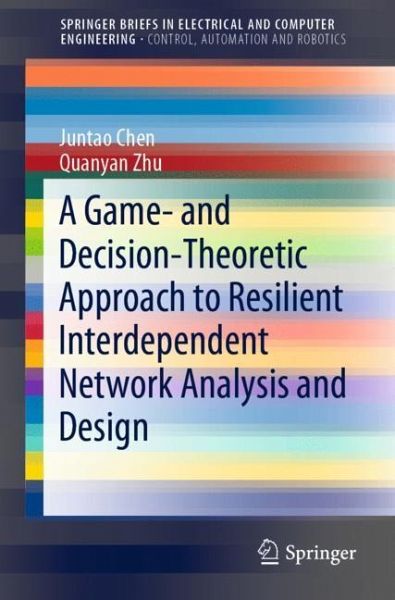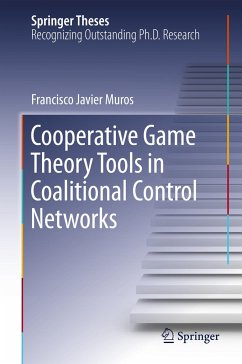
A Game- and Decision-Theoretic Approach to Resilient Interdependent Network Analysis and Design

PAYBACK Punkte
19 °P sammeln!
This brief introduces game- and decision-theoretical techniques for the analysis and design of resilient interdependent networks. It unites game and decision theory with network science to lay a system-theoretical foundation for understanding the resiliency of interdependent and heterogeneous network systems.The authors pay particular attention to critical infrastructure systems, such as electric power, water, transportation, and communications. They discuss how infrastructure networks are becoming increasingly interconnected as the integration of Internet of Things devices, and how a single-p...
This brief introduces game- and decision-theoretical techniques for the analysis and design of resilient interdependent networks. It unites game and decision theory with network science to lay a system-theoretical foundation for understanding the resiliency of interdependent and heterogeneous network systems.
The authors pay particular attention to critical infrastructure systems, such as electric power, water, transportation, and communications. They discuss how infrastructure networks are becoming increasingly interconnected as the integration of Internet of Things devices, and how a single-point failure in one network can propagate to other infrastructures, creating an enormous social and economic impact. The specific topics in the book include:
· static and dynamic meta-network resilience game analysis and design;
· optimal control of interdependent epidemics spreading over complex networks; and
· applications to secure and resilient design of critical infrastructures.
These topics are supported by up-to-date summaries of the authors' recent research findings. The authors then discuss the future challenges and directions in the analysis and design of interdependent networks and explain the role of multi-disciplinary research has in computer science, engineering, public policy, and social sciences fields of study.
The brief introduces new application areas in mathematics, economics, and system and control theory, and will be of interest to researchers and practitioners looking for new approaches to assess and mitigate risks in their systems and enhance their network resilience. A Game- and Decision-Theoretic Approach to Resilient Interdependent Network Analysis and Design also has self-contained chapters, which allows for multiple levels of reading by anyone with an interest in game and decision theory and network science.
The authors pay particular attention to critical infrastructure systems, such as electric power, water, transportation, and communications. They discuss how infrastructure networks are becoming increasingly interconnected as the integration of Internet of Things devices, and how a single-point failure in one network can propagate to other infrastructures, creating an enormous social and economic impact. The specific topics in the book include:
· static and dynamic meta-network resilience game analysis and design;
· optimal control of interdependent epidemics spreading over complex networks; and
· applications to secure and resilient design of critical infrastructures.
These topics are supported by up-to-date summaries of the authors' recent research findings. The authors then discuss the future challenges and directions in the analysis and design of interdependent networks and explain the role of multi-disciplinary research has in computer science, engineering, public policy, and social sciences fields of study.
The brief introduces new application areas in mathematics, economics, and system and control theory, and will be of interest to researchers and practitioners looking for new approaches to assess and mitigate risks in their systems and enhance their network resilience. A Game- and Decision-Theoretic Approach to Resilient Interdependent Network Analysis and Design also has self-contained chapters, which allows for multiple levels of reading by anyone with an interest in game and decision theory and network science.












